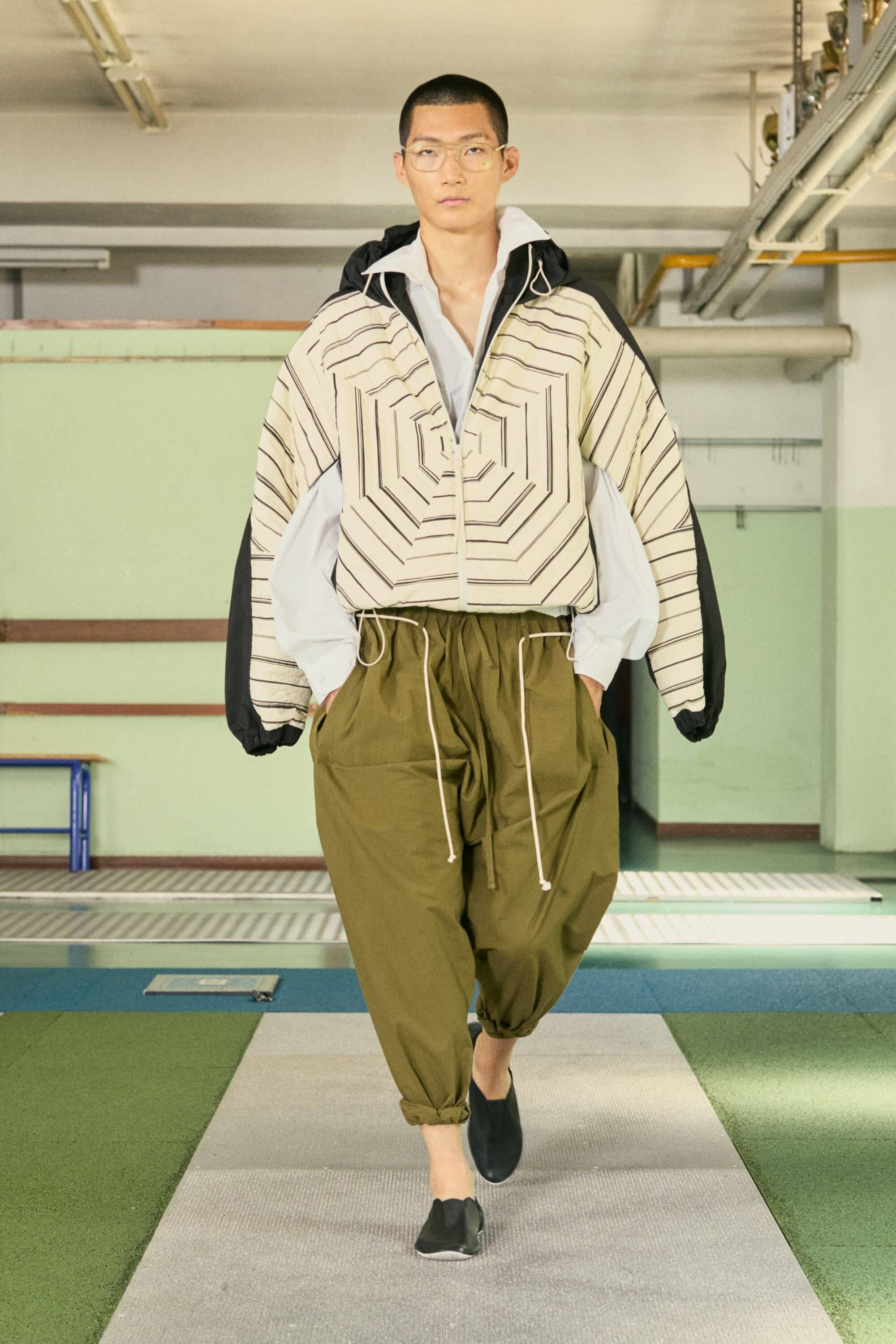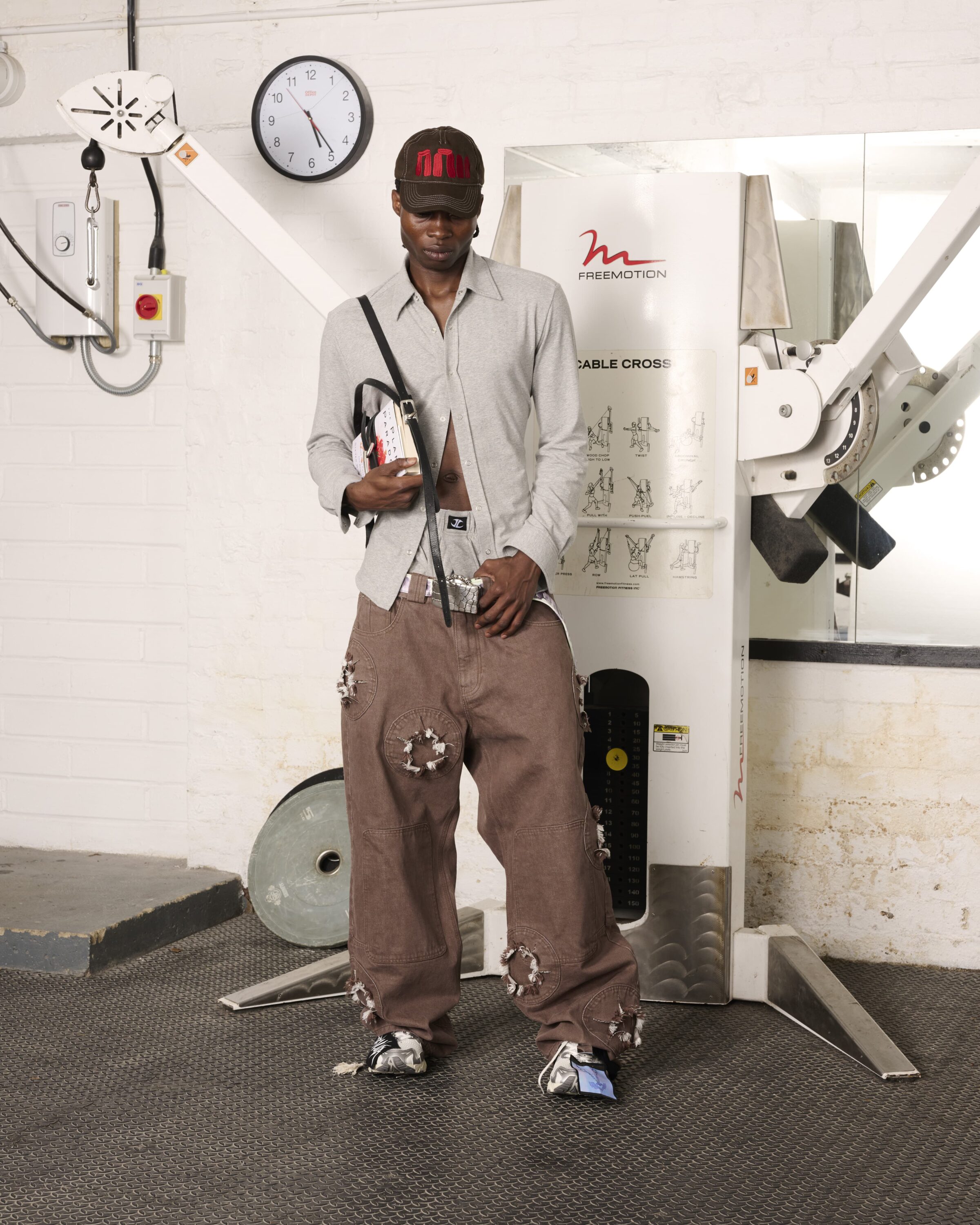'Sound of Falling' Review: Four Generations of German Girls Suffer the Same Growing Pains in Masha Schilinski's Mesmerizing Stunner

Unfolding like 100 years of home video footage that were shot by the family ghosts, Mascha Schilinski’s rich and mesmeric “Sound of Falling” glimpses four generation of young women as they live, die, and suffuse their memories into the walls of a rural farmhouse in the north German region of Altmark.
In the 1940s, after some of the local boys are maimed by their parents in order to avoid fighting Hitler’s war, teenage Erika (Lea Drinda) hobbles through the halls with one of her tied legs up in string, eager to know what losing a limb might feel like. Unbeknownst to her, cherubic little Alma (Hanna Heckt) expressed a similar curiosity some 30 years earlier when she played dead on the parlor room couch, posing in the same position that her late grandmother’s corpse had been placed for a post-mortem daugerreotype.
And yet, coming of age in the German Democratic Republic of the 1980s, Angelika (Lena Urzendowsky) might think she’s inventing her girlish impulse towards self-negation when she fantasizes about lying down in front of her father’s tank-sized land imprinter as it mulches her body into the earth, just as Lenka (Laeni Geiseler) — living in our present — wonders if she’s the first person to be looked at in a way that burns under her skin. We rarely see these characters overlap in a literal sense, and their specific relationships to one another remain hard to define (it would take a professional arborist to untangle the roots of this movie’s family tree, at least on first watch), but “Sound of Falling” is deeply attuned to the echoes between them.
Somehow both hyper-subjective and hauntingly disembodied all at once, Schilinski’s recursive second feature floats through the decades like an errant thought hoping to find someone who might recognize it as one of their own. The film lopes forwards and backwards in time without notice or warning, Fabian Gamper’s camera often peering through keyholes and floorboards in order to reconcile the tunnel vision of being alive with a quietly Teutonic awe at the vastness of having lived. Some eye-level shots are clearly tethered to the perspective of a certain character, while others seem to stem from the POV of an invisible spirit crouching next to them, as if assigning physical dimension to the third-person of our remembered pasts.
Intimate and infinite in equal measure, the movie’s freeform structure and emotional tonality might evoke everything from “The Hours” and “The Virgin Suicides” to Robert Zemeckis’ “Home,” and Charli XCX’s “Girl, so confusing” (why not), but its style found me returning to Edward Yang’s magnificent “Yi Yi” as the most immediate point of reference. Specifically, the character of eight-year-old Yang-Yang, who photographs the backs of people’s heads in order to show them the parts of themselves they can’t see on their own.
“You always see things from the outside, but never yourself,” one of Schilinski’s characters muses in a snippet of the diaristic voiceover that holds this film together. She rues the fact that blushing externalizes the exact emotion that someone is trying to hide, just as Angelika — who’s cannonballing into her sexuality, and rumored to be sleeping with her uncle — resents that she can will her legs to move, but not her heart to stop beating.
Do our brains flip the world rightside up, or do they force us to see it upside down? “Sound of Falling” isn’t disinterested in personal drama, but that drama is reliably sublimated into the perspective through which it’s experienced. So tenderly in touch with the shared but unspoken traumas that are visited upon her cast of young women, Schilinski mines tremendous sorrow from the secret poetics of girlhood; she weaponizes cinema’s ability to access the deepest interiors of human feeling, and swirls her characters together in a way that tortures them for their subjectivity.
The more intimately we come to understand the hurt and heartache that Alma, Erika, Angelika, and Lenka all experience in their own ways, the more it kills us that they aren’t able to commiserate with each other (the film’s temporal porousness is heightened by its glancing attention to various social and political borders, some of which are more easily crossed than others). Nothing is new in this world, but pain turns us all into pioneers.
If only the film’s characters had the chance to compare notes, perhaps they might not share the same affinity for self-erasure. But they do feel one another (intangibly, the way that an amputee might scratch at a phantom limb), and the 150-minute “Sound of Falling” is held aloft by its compelling attention to sense memory. As one of the girls puts it: “It’s funny how something can hurt that’s no longer there,” and that hurt accrues an ethereal power of its own as Schilinski doubles back to flesh it out.
Her film is piloted by sense memory, its story (a lot) less concerned with conflict or incident than it is with the buzz of a housefly, the bite of a fish, or the beat of that one pop song that Lenka and her only friend listen to all summer long. Brittle silences give way to an ominous hum, and occasionally to the fuzz of a record needle in search of the groove it needs to know its purpose. It’s the perfect soundtrack for a reverie that spins in smaller and smaller circles until its attention grows focused enough to observe a single mote of sublime transcendence — and to defy the gravity that’s been accumulated from almost 100 years of solitude.
“It’s too bad you never know when you’re at your happiest,” one of the girls laments, and it’s true that none of these characters may ever be able to contextualize their emotions with the perspective necessary to survive them. But Schilinski’s arrestingly prismatic film — so hazy and dense with detail that it feels almost impossible to fully absorb the first time through — keeps sloshing its way through the years until those blind spots begin to seem revelatory in their own right. These girls can only see so much of themselves on their own, but “Sound of Falling” so vividly renders the blank space between them that it comes to feel like a lucid window into the stuff of our world that only the movies could ever hope to show us.
“Sound of Falling” premiered at the 2025 Cannes Film Festival. It is currently seeking U.S. distribution.
Want to stay up to date on IndieWire’s film and critical thoughts? to our newly launched newsletter, In Review by David Ehrlich, in which our Chief Film Critic and Head Reviews Editor rounds up the best new reviews and streaming picks along with some exclusive musings — all only available to subscribers.












